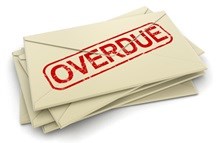The combined effect of the fuel price increase, the electricity price increase in Johannesburg and the increased ticket price by Metrorail in the Western Cape, which all kicks in early this July, is expected to have a severe impact on already hard-pressed consumers.

© corund - Fotolia.com
City Power announced that it would increase its tariffs by an average of 7% from 1 July, after the National Electricity Regulator of SA (NERSA) approved hikes.
Metrorail announced that train tickets would increase on 1 July with the cost of single tickets increasing by 50 cents, return tickets by R1. Weekly ticket increases range between R3 and R7 while monthly tickets increase between R7 and R30, it said in a statement.
The projected increase in the petrol price of around 20 cents a litre this week is going to fix the fuel price at a near record high of R14.30 while diesel will increase by 13 cents a litre pegging the price at R12.90.
Debt trap looms for more South Africans
Neil Roets, CEO of one of South Africa's largest debt management firms, Debt Rescue, said these increases could lead to many more South Africans falling into the debt trap.
It is also going to place added pressure on the Reserve Bank to curb inflation, which is above its 3-6% target band and could rise further in a deteriorating domestic economic environment according to deputy Central Bank governor, Daniel Mminele.
"We have seen a steady growth in the number of clients seeking our help by being placed under debt review. This is to some degree is the result of the general increase in the cost of living but the monthly increase in the fuel price is beginning to play a major role," says Roets.
The range of increases in essential services such as electricity and rail transport, coupled to the fuel increase, is going to have a major impact on the disposable income of hard-pressed consumers who will face greater challenges in making ends meet.
Many will lose their middle class status and become impoverished due to the general increase in the cost of living and rising inflation. Total consumer debt was now topping R1.44-trillion (according to Statistics South Africa).
Dawie Roodt, an independent economist with the Efficient Group, said further increases in the fuel price could be expected over the next several months as the Rand is expected to depreciate further and because there has been a steady rise in the price of crude oil. "We don't predict any relief in the foreseeable future and fuel prices will continue climbing," Roodt said.
Roets said rising food and fuel costs and slow economic growth are making it difficult for many South Africans to pay back their loans on time. One in every four South Africans is unemployed and the number of borrowers who are three or more payments in arrears has risen to nearly 50%.
"The writing is on the wall for many middle class families who have only recently escaped from dire poverty. Many will be pushed back into poverty," he concluded.
For more information, go to www.debtrescue.co.za.
































